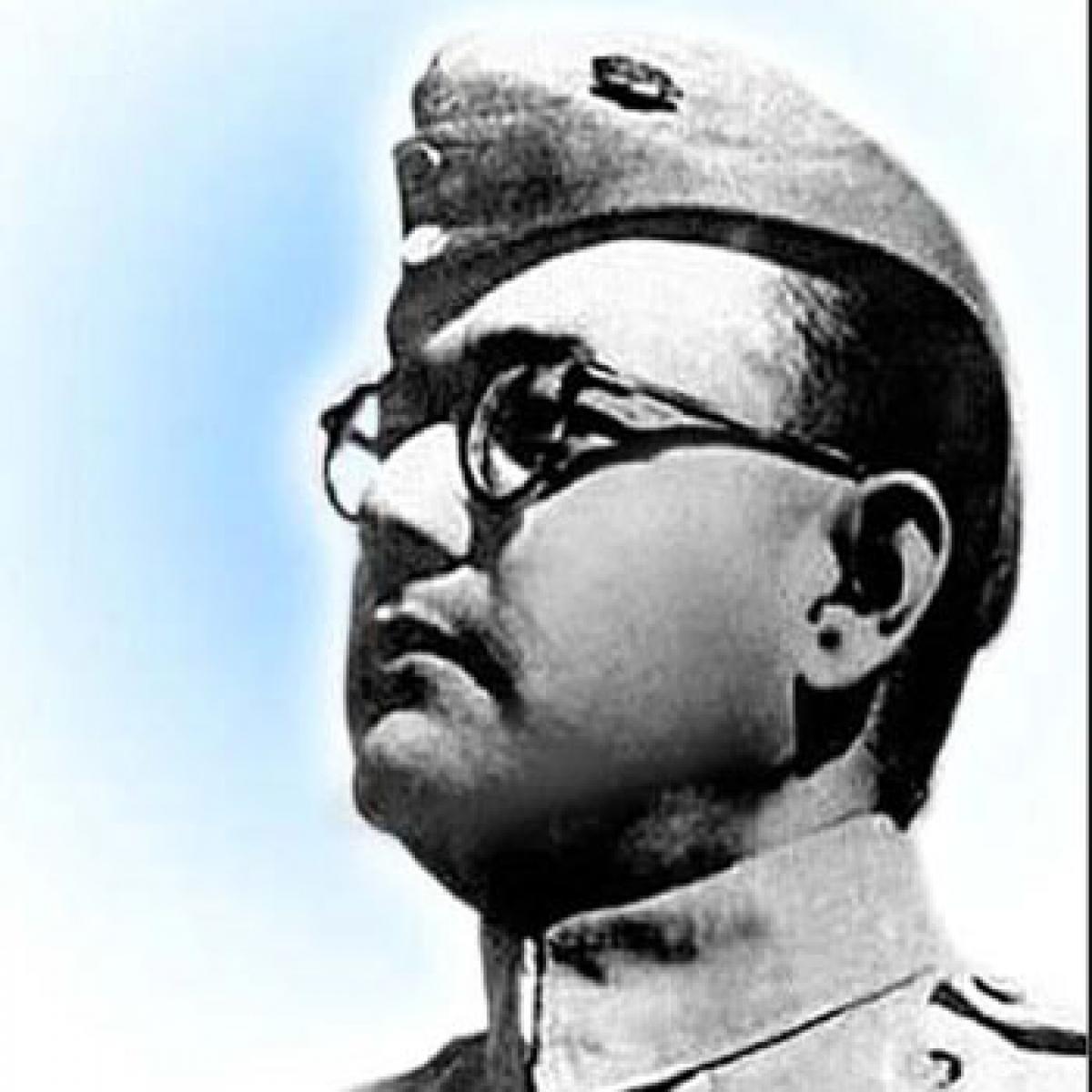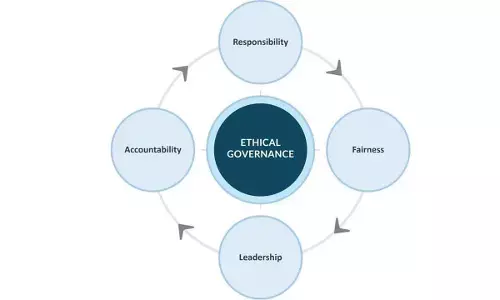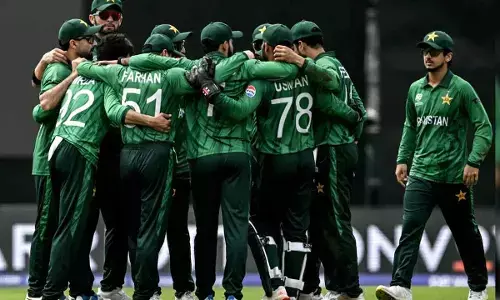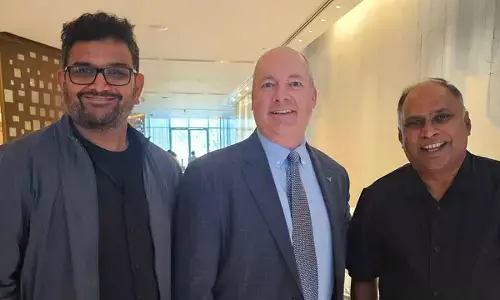Less space in textbooks for national heroes

NCERT was questioned for reducing the content of lessons in their history textbooks about Netaji Subhas Chandra Bose and Swamy Vivekananda. Suryapratap Singh Rajawat, Convener, Sri Aurobindo Society Rajasthan, criticised non-inclusion of history of national personalities and revolutionaries in the NCERT textbooks.
The appellant has objected to reducing the space for the heros like Netaji Subhas Chandra Bose in textbooks. Prior to 2007, NCERT contained 500 words about Netaji in 8th class and 1,250 words in 12th class textbooks. Now in 12th class, only 87 words are given and in 8th class Netaji’s history is totally missing. Not only of Netaji, but also the stories of 36 national revolutionaries including Chandrasekhar Azad and Sukhdev are not there
NCERT was questioned for reducing the content of lessons in their history textbooks about Netaji Subhas Chandra Bose and Swamy Vivekananda. Suryapratap Singh Rajawat, Convener, Sri Aurobindo Society Rajasthan, criticised non-inclusion of history of national personalities and revolutionaries in the NCERT textbooks.
He passionately pleaded that the new generations need to know the great sacrifices of the celebrities of our nation in the yesteryears, who fought for the liberation from the English rule, such as Aurobindo Ghosh, Ashfaq Ullakhan, B K Dutt, Badal Gupta, Bagha Jatin Mukherjee, Barinder Ghosh, Batukeshwar Dutt, Benoy Krishna Basu, Bhagat Singh, Chandra Shekhar, Dinesh Gupta,
Dr Saifudin Kitchlew, Jatindra Nath Das, Kalpana Dutt, Kartar Singh, Khudiram Bose, M N Roy, Madam Bhikaji Cama, Madan Lal Dhingra, Shyamji Krishna Varma, Obeidulla Sindhi, Prafulla Chaki, Pritilata Waddedar, Raja Mahendra Pratap, Ram Prasad Bismil, Rani Gaidinliu, Rash Bihari Bose, Sachindra Nath Sanyal, Savarkar, Sohansingh Bhakna, Sukhdev, Suryasen, Swami Vivekanand and Udham Singh.
He claimed that nothing was found about these great personalities, who inspired generations. He said it was not appropriate to give 37 pages to cricket and history of cloth, but nothing on the lives of national freedom fighters. He submitted a table in which the photos of these great persons were inserted with a tag ‘not found’ in NCERT textbooks.
Surya Pratap has objected to reducing the space for the heros like Netaji Subhas Chandra Bose in the textbooks. Prior to 2007, NCERT contained 500 words about Netaji in 8th class and 1,250 words in 12th class textbooks. Now in 12th class, only 87 words are given and in 8th class Netaji’s history is totally missing.
Not only of Netaji, but also the stories of 36 national revolutionaries including Chandrasekhar Azad and Sukhdev are not there. All the lessons mentioning the revolutionary stories of these personalities were later removed from these books. He criticised that the NCERT syllabus pays a lip service to the national youth icon Swami Vivekenanda.
He further criticised in his second appeal: “Numerically only 26 words have been employed to introduce Swami Vivekananda and Ramakrishna Mission. Last but not the least, there is no mention of Sri Aurobindo - Prophet of Nationalism – in the current NCERT syllabus of history. And barring Bhagat Singh and B K Dutta there are no revolutionaries mentioned in current history books of NCERT.”
The NCERT responded by saying: “Following the adoption of NCF 2005, the Social Science Syllabus was revised by a duly constituted Syllabus Revision Committee taking the National Focus Group Position Paper on ‘Social Sciences’ as a point of reference and ‘Learning without Burden” as the overarching guiding principle.
Accordingly the textbook development committees constituted by the NCERT comprising subject experts, pedagogues and practising teachers developed textbooks in various social science subjects including History to allow students ‘space’ and ‘opportunities’ to contemplate, ‘wonder’ and ‘discuss in small groups’ events and issues that highlight and explain the country’s multilayered pasts,
and take interest in it to go for further studies in the subject while doing activities to gain ‘experimental learning.’ Hence the syllabi and textbooks in history were drawn up thematically and in more student friendly manner….” (Appellant complained that the sentence broke in the middle and full information was not given)
In response to first appeal received on 7.6.2014, Professor Neeraja Rashmi, Head of the Department and Public Information Officer, wrote on 16th June 2014: “…matters to which you have sought to know…do not particularly constitute a query that could be suitably addressed under the provisions of the RTI. .. Review and revision of syllabi and textbooks is an ongoing process in NCERT. We have taken note of your suggestions regarding the History textbooks of NCERT.
The same will be placed before the Textbook Development Committees during the revision of textbooks for appropriate consideration”. On 6th January, 2016, during hearing of second appeal, Prof Neeraja Rashmi submitted a note claiming that the second appeal copy was not furnished to them, that the response was sent within first 30 days, another response was given on 16th June 2014 after the first appeal was filed.
The appellant’s grievance petition dated 12th February 2013 was responded on 18th October 2013 and response of the Department of Higher Education dated 17th January 2014 was available on Grievance Portal of Government of India. PIO pleaded that there was no deliberate delay. Appellant’s earlier grievance letter against paying lip service to Swami Vivekananda dated 22nd January 2015 was received on 13th May 2015,
which was responded to on 5th June 2015, which is also available on Grievance Portal. It was also sent on email to appellant. The Grievance Action Status contained the full response of NCERT, a quarter of which was not given. The portion which did not reach the appellant is: “So it goes without saying that not every bit of information could be provided in the textbook as the basis on which the syllabi and textbooks were developed was only illustrative and not exhaustive in orientation.
However, as explained above, the syllabi and textbooks provide ample opportunities to students to learn or to expand their knowledge base on any aspect of the Indian and the World Histories by taking up learning enrichment activities in consultation with teachers”.
In the response to grievance, the NCERT under secretary S S Bisht explained the objectives and methods of developing the lessons in the textbooks and concluded that appellant’s grievance was redressed favourably.
The Information Commission said: “From the responses it was clear that NCERT has explained how a lesson is developed and placed in a textbook. The respondent officer submitted that all the suggestions made by the appellant will be placed before the Syllabus Revision Committee and would implement the committee’s recommendations as given by them.
Professor Neeraj Rashmi said that they could not interfere with the independent committee which decides the content of lesson and textbook.” “The appellant’s RTI application is more a criticism, or suggestion or opinion. It could be a complaint also. The Commission opines that respondent authority should have considered applicant’s RTI request as a complaint, and that he has a right to know the action taken on his complaint.
The appellants’ complaint deserves consideration and a comprehensive response from the appropriate committee. It is the duty of the public authority under Section 4(1)©, which say publish all relevant facts while formulating important policies or announcing the decisions which affect the public, and (d) provide reasons for its administrative or quasi judicial decisions to affected persons.
Hence to perform that duty, the NCERT is directed to provide comprehensive response to the following questions, culled out of the RTI application, appeals, responses of public authority and contentions of the both the parties:
a) Why the content of the life of Swami Vivekananda was reduced from 1,250 words to 87 words in 12th Class textbook and why it is removed totally from 8th class textbook, if what is pointed out by the appellant was true?
b) Why the national heroes found less space while giving 37 pages to subject of cricket and history of cloth, if it is true?
c) How many of 36 national heroes listed in this order were mentioned in the lessons, if it is not true that 36 heroes were ignored?
d) What are the efforts taken by the NCERT to make the lessons about the history and national heroes strictly objective without any bias or orientation, as apprehended by the appellant?
The Commission rejected the prayer for penal action and compensation, as the public authority’s response to RTI and Grievance Cell was reasonable. (Based on my decision on 22.1.2016, CIC/CC/A/2014/000207-SA in Suryapratap Singh Rajawat Vs. National Council of Educational Research and Training, New Delhi)









